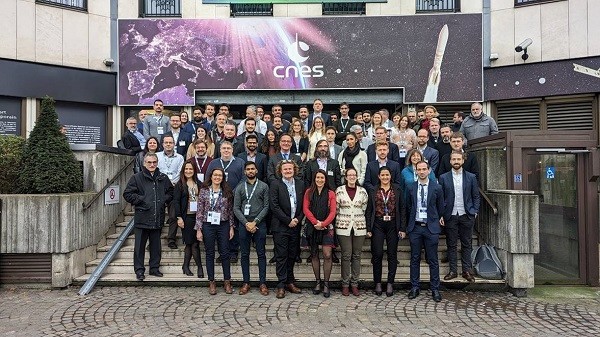GMV, helping to address end-of-life satellite removal, now and for the future

On January 18-20, GMV participated in the 9th edition of the “Workshop on Satellites End of Life and Sustainable Technologies” in Paris, which took place in the Space Hall at France’s National Space Research Center (CNES). Javier Carro, GMV’s Ground Segment Sales Manager for its Space Systems EST sector in France, attended the workshop as the company’s representative. The event brought together key participants in the space industry, including regulators, governmental bodies, operators, and other authorities, as a way to encourage discussion and find solutions for the growing challenges the industry is facing with regard to satellite removal.
The workshop provided an opportunity to showcase some of the technological innovations that are now under development for improving maintenance of satellites and facilitating their removal at the end of their useful life. GMV also took advantage of the event to present its innovative optical data provision service, which is being used to assist the European Organisation for the Exploitation of Meteorological Satellites (EUMETSAT) with its re‑orbiting operations for the Meteosat‑7 and Meteosat‑8 satellites.
The workshop was divided into various sessions that all addressed highly relevant topics. One of these was the challenge the space industry is now facing from unexpected increases in the number of satellites and amount of space debris orbiting the Earth, as even the most pessimistic predictions regarding these figures have been greatly exceeded in recent years. This upward trend in the number of existing satellites has changed the nature of the problem that must be addressed, with all efforts shifting away from a focus on controlling the number of objects in orbit, and towards the need for active removal in order to ensure a sustainable environment for future missions.
During the 9th “Workshop on Satellites End of Life and Sustainable Technologies” there were also discussions held regarding some of the recent de‑orbiting missions performed and the lessons learned from them, along with planning of future de‑orbiting operations, improvement of end-of-life (EOL) strategies, and the leading-edge tools that will be used to support all of these efforts.
The workshop also provided opportunities to present a variety of innovative technologies designed to service satellites and dispose of those no longer in use, such as mission extension vehicles (MEVs), auxiliary propulsion systems, etc. The event concluded with a review of current and future regulatory frameworks and the efforts being made to standardize technologies.